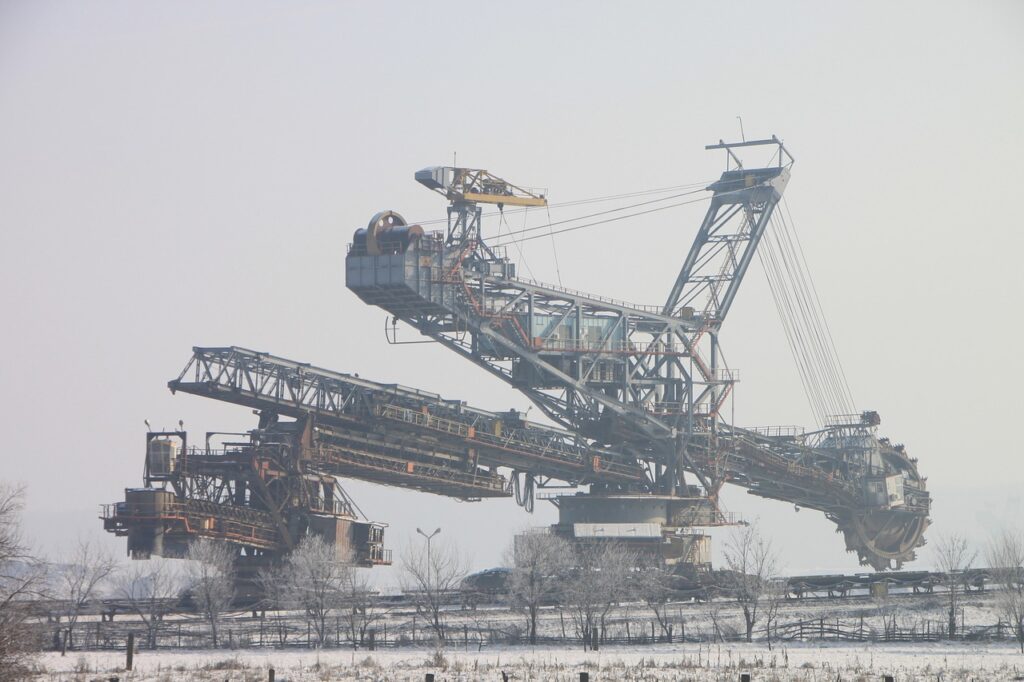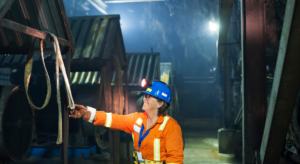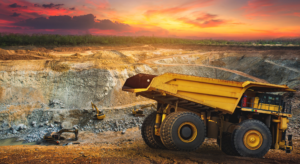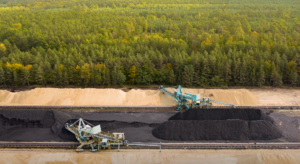The mining sector is up against an unparalleled obstacle. It must satisfy the rapidly increasing demand for vital minerals required for technologies based on renewable energy. This is while maintaining strict adherence to ESG standards and minimizing environmental effects. The world is heading towards a future with reduced carbon emissions. Small Modular Reactors (SMRs) provide a potentially groundbreaking solution here. It helps the mining sector to achieve its ESG targets and contributes to the global energy transformation.
Furthermore, these advanced nuclear reactors offer a unique combination. This has an emission-free operating system, improved safety measures, and a small, modular design. They thus present an alluring option for resolving the sustainability issues facing the sector. This article will explain small modular reactors and their role in reaching environmental, social, and governance (ESG) goals. So, let’s begin.
The Mining Industry’s ESG Imperative
The mining sector has several social and environmental responsibilities. This is in addition to its critical function in supplying necessary minerals. Neglecting to tackle these issues may compromise the sector’s capacity. This is to aid in the worldwide energy shift and impede its social license to function.
Balancing Mineral Extraction and Environmental Stewardship
Companies engaged in mining must carefully balance reducing their environmental effect with satisfying the market for essential minerals. This is putting into practice sustainable mining techniques from exploration to closure. The goal is to reduce the harm that mining does to the ecosystem. This covers the usage of water, disturbance of the soil, and emissions of greenhouse gases.
Addressing Social and Governance Concerns
The mining sector needs to address social and governance challenges in addition to environmental ones. This includes interacting with neighborhood groups and upholding the rights of Natives. So, it makes sure that fair labor practices are followed and upholds strict guidelines for accountability and transparency. Failing to do so may result in disputes, legal troubles, and harm to one’s image.
Remote Operations: A Decarbonization Challenge
One of the primary obstacles to decarbonization in the mining sector is the remote character of operations. These places have historically relied on diesel generators since they are far from centralized energy networks. This has increased local air pollution and greenhouse gas emissions. To minimize the sector’s environmental consequences and match mining operations with global climate goals, a shift to more environmentally friendly energy sources is required.
The mining sector can improve its long-term profitability and competitiveness by attending to these ESG imperatives. This is all the while contributing positively to a sustainable future.
Small Modular Reactors: Pioneering Sustainable Energy Solutions for Mining
SMRs offer a special set of advantages that solve the ESG issues facing the mining industry. It marks a paradigm change in the industry’s pursuit of sustainable operations. Moreover, the industry’s concerns about sustainability may be addressed with these cutting-edge nuclear reactors/ This is because they offer a dependable and emission-free source of heat and energy.
The SMR Advantage: Compact, Modular, and Emission-Free
Cutting-edge SMR for ESG targets provides improved safety measures and modular construction. Moreover, it also offers the flexibility to be installed in distant or off-grid locations—all while being smaller and more capable than conventional nuclear power plants. Above all, SMRs provide mining and mineral processing industries with a dependable, emission-free supply of heat and energy.
Economic Viability: Cost-Effective and Operationally Efficient
Small modular reactors are economically competitive with conventional energy sources utilized in distant mining operations. This is despite popular belief to the contrary. SMRs are marketed as an inexpensive way to reduce emissions and operational expenses, especially micro-SMRs.
Enabling Responsible Mining of Critical Minerals
The NEA study highlights the strategic importance that SMRs hold in energy transition. They help ensure that vital minerals are extracted responsibly. This includes cobalt, lithium, and many more rare earth elements. Furthermore, these minerals need several sustainable energy technologies. This includes EVs, solar panels, wind turbines and more. As a result, it shows the nature of responsible mining to help facilitate a much broader shift to renewable energy generation all over the world.
Achieving ESG Goals with Small Modular Reactors
Utilizing SMRs as a sustainable energy source can help mining companies meet their ESG goals. It can also help to have a positive impact on a more sustainable future.
Reducing Scope 1 and Scope 2 Emissions
The scope 1 (direct) and scope 2 (indirect) emissions associated with the production and use of energy in the mining sector might be significantly reduced by small modular reactors. This is by offering a clean and dependable energy source. This is in line with industry aspirations to attain net-zero emissions and decarbonize operations. This will benefit mining towns’ public health and air quality.
Enhancing Energy Security and Resilience
SMR for ESG targets can increase the mining industry’s resilience and energy security. Their scalability and modular architecture enable flexible deployment. As a result, it lowers reliance on outside energy sources. It also lowers the hazards related to fuel supply outages or unstable grids. The impact that disruptions in energy sources have on productivity and profitability makes shock tolerance essential for distant mining operations.
Fostering Social Responsibility and Community Engagement
Small modular reactors are an environmentally friendly energy source. They can help mining companies meet their social obligations. It can also help in engaging the community more effectively. Furthermore, building trust and addressing any nuclear technology-related concerns can be achieved by open communication. It can also be achieved by education and meaningful consultative processes. Additionally, this can promote a more favorable connection between mining activities and the people they affect.
Overcoming Barriers to SMR Adoption in Mining
Small modular reactors provide several advantages for sustainable mining. Nevertheless, before they can be widely adopted, there are some disadvantages of small modular reactors that must be resolved and public acceptability must be increased.
Establishing a Supportive Regulatory Framework
An environment of policy and regulation that is favorable to SMR deployment in the mining industry is essential. Furthermore, organizations must provide precise standards and expedite approval procedures. It should address concerns with siting, licensing, and environmental impact studies. This is to guarantee the safe and effective deployment of SMR technology, governments, and regulations.
Building Trust through Stakeholder Engagement
Involving local people, indigenous groups, and other pertinent stakeholders is essential. They help to achieve public acceptability and effectively resolve issues about nuclear technology. Moreover, transparent communication, education, and meaningful consultation processes are crucial for mining firms and SMR developers. It helps to overcome any misunderstandings and establish confidence.
Fostering Collaboration and Knowledge Sharing
Collaboration and knowledge exchange is a must. This is to expedite the mining industry’s adoption of SMRs, mining corporations, SMR developers, research institutes, and regulations. Moreover, the mining sector can optimize designs, overcome technological issues, and promote best practices for sustainable mining operations. This is by pooling its combined experience and resources.
To Sum Up
Small Modular Reactors offer a promising solution for the mining sector to meet ESG goals. Moreover, they support the global shift to a low-carbon economy, promoting sustainability. Especially in remote areas, small modular reactors can significantly reduce mining’s environmental impact. They offer a dependable, affordable, and emission-free energy source. However, businesses, legislators, researchers, and the general public will all need to take action for SMRs to be widely used in mining. Together, they can take on some of the harder challenges and help drive faster adoption of this transformational technology.
Join us at the 5th Energy Transition and Emission Reduction Summit for the Metals and Mining Industry in Helsinki, Finland on June 11-12, 2024 to explore the potential of SMRs in attaining ESG targets. Participants can gain valuable insights, join panel discussions, and network with key stakeholders, shaping the future of sustainable mining practices. Take advantage of this chance to contribute to positive change in the industry. Register now and help create a more sustainable and environmentally responsible future for mining.





